Ankur Pathak in Mumbai
Internationally acclaimed independent filmmaker Ashim Ahluwalia's film, Miss Lovely, has been shortlisted in the Un Certain Regard category for this year's Cannes Film Festival scheduled to be held in May.
The film documents the fascinating C-grade film industry, notorious for rolling out sub-standard sex-horror flicks.
It was initially planned as a documentary but Ahluwalia couldn't get insiders to talk on-camera. So, a fictional screenplay had to be written on which the film is structured.
In this interview with Ankur Pathak, the filmmaker talks about his unwillingness to make compromises, and why he thinks Bollywood doesn't really contribute to the wider realm of cinema.
What does this recognition from the Festival De Cannes do for your film company?
Cannes is massively helpful for a lot of independent filmmakers. It is what I call a free hype-machine. I don't have to go out there and push my film in your face. I make a Miss Lovely and it gets short-listed and there is an automatic sense of curiosity.
There is a lot of media interest and there is a lot of interest from the distributors. So Cannes has this entire circus quality to it. For a filmmaker like me, who cannot get himself to extensively promote his film, the festival recognition is fantastically helpful as it facilitates my product to reach out to the world.
Where does the inspiration for a film as peculiarly different as Miss Lovely come from?
I don't think the film is so different. I think about it as the kind of cinema I want to make. I want to make films that are about India, that are staunchly real, that depict a picture of the way we really do things.
The C-grade film industry is quite a significant part of our film industry. Everybody is aware of it but nobody will talk about it.
There is a massive audience in small towns that in the late 1980s patronised sex-horror films like Maut Ka Chehra, Khooni Chudail or whatever. They weren't watching A-grade Bollywood.
So, it is basically stuff that I am interested in as an underground, rebellious filmmaker, making stuff everybody is watching but nobody is talking about.
'There's a massive audience that patronised sex-horror films in the 1980s'
Image: A scene from Miss LovelyAre you being satirical or documenting the C-grade scene with dignity?
I did not want to make a parody and I did not want to laugh at them.
That was partly the reason it was difficult for me to get the finance. It started out as a documentary project and so I started hanging out with these C-grade filmmakers -- drinking, partying and chilling with them for nearly one year.
Finally, after I had understood the scenario to the hilt, they tell me that they don't want to be on-camera.
The reason being?
Because it is illegal to shoot porn in India, and one can be arrested.
There is also the medium through which the money flows in: there's a lot of gangland money. So suddenly people were like, "Oh, you going to film this on-camera? No, boss, not happening." It was disappointing.
What did you do then?
I had mingled with them for one full year. I knew the scene authentically. So I wrote a screenplay with fictional characters based on my real-life experiences.
You can call it a fictionalised real-life story, meaning that the characters have been designed in such a manner that they are not recognisably real.
'I don't enjoy commercial films at all'
Image: A scene from Miss LovelyWhen you couldn't make the documentary you set out to, why stick with this particular subject?
It is something I relate to. I felt it was a great theme for my first full-length feature.
Also, I felt a certain affinity for this once-flourishing sub-culture, which developed over the period of that one year and which further strengthened my convictions.
I realised this is the kind of cinema I want my name to be attached to, and not a film with Shah Rukh Khan in it.
Does this kind of attitude hint at an anti-commercial stance?
Probably. I don't watch those films myself. I don't enjoy them at all. I don't find them entertaining. I find the stuff that I watch from around the world more interesting and entertaining.
I grow more as an individual and as a filmmaker when watching world cinema.
Are you saying that the films Bollywood rolls out every year don't contribute to cinema in any substantial manner?
I don't think it does. It contributes to the realm of the box office.
'If I was a 20-year-old and interested in cinema, this is the kind of film I'd want to watch'
Image: A scene from Miss LovelyWhich is not where you want to reach?
That is not my primary goal. If tomorrow a distributor buys my film for a million dollars, I am happy to sell it. Ultimately, I want my film to be seen by a lot of people. I don't want to restrict my film to a very niche class.
But just because I want my film to be there in all the theatres, I won't make a bad comedy. I will never succumb to the mainstream just for the heck of it. It is just not me.
There are a lot of people between the audience and me, the filmmaker, which is why a film like Miss Lovely has difficulty getting a wider release.
What about problems with the country's Censor Board? Wouldn't the nudity and language give you grief if the film is for Indian audiences?
The film doesn't centre only on nudity or offensive language. It is, of course, the milieu it is set in, but it isn't hinging on it.
Miss Lovely's got a proper structure, a narrative and a story to tell. So removing the bits which the Censor Board would have a problem with is not going to destroy my film. And to reach a wider audience, I'm all right with the minor compromise.
If I was a 20-year-old and interested in cinema, this is the kind of film I'd want to watch. I'm glad I could at least make the film because 10 years ago, you couldn't even think of making such a film.
'Even Anurag Kashyap and Dibakar Bannerjee are making films with their hands tied'
Image: A scene from Miss LovelyAre we then on a progressive track as far as cinema is concerned?
We are. At least that is what I want to believe. It is still miles away, but we are reaching there.
The problem with our industry is that there is a lack of risk-taking which ends in a lack of choice for audiences.
Which Indian directors do you think are worthy of a Cannes recognition?
There are the usual suspects. There is Anurag Kashyap and there is Dibakar Banerjee, but these people, too, are making films with their hands tied.
That is not how a film should be ideally made. When you have to make a film of your own, there are too many compromises you have to make which restricts your film from reaching a global audience. And these compromises, from actors to the music, have to be made to get your film out.
What is the way out?
The only answer: make no compromise.
For that, you have to start small, be a little low on ambition. Reach to a point where there is international interest in your films so you are not dependent only on the local market.

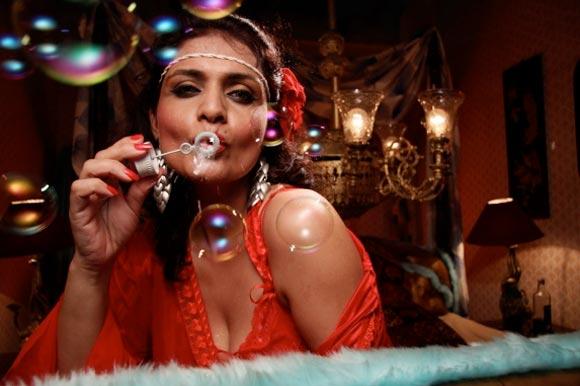
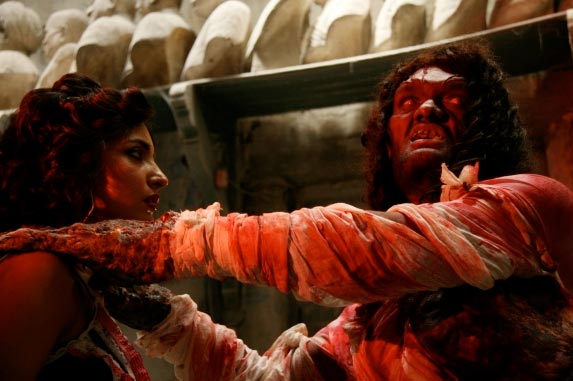
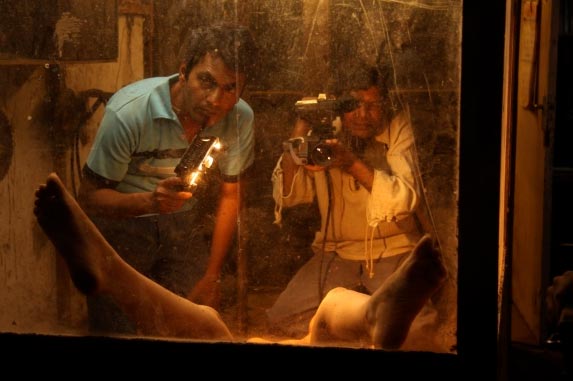
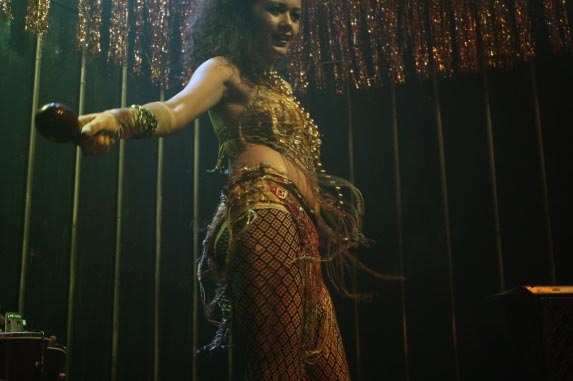
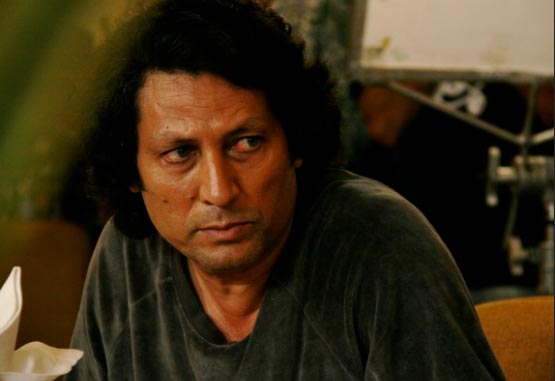
Comment
article